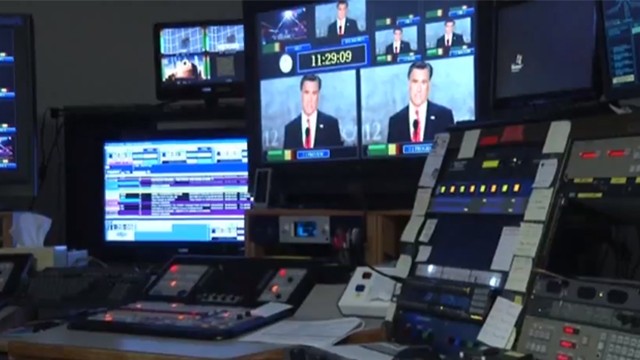
In the run-up to November’s election, a group called Freedom PAC spent $3.8 million, most of it to support former Florida congressman, Connie Mack, in his bid for Senate. Of that spending, $190,000 went to a Tampa, Fla. television station, WFLA. But WFLA noted that when Freedom PAC bought the ads, they “refuse[d] to sign/fill out” the mandatory disclosure forms. WFLA ran the ads anyway.
Freedom PAC did provide a form that listed a treasurer with a Kansas mailing address, but when the Sunlight Foundation, a government watchdog group, contacted the person listed, it turned out to be a representative for the wrong PAC — for a different Kansas-based Freedom PAC that had never purchased television ad time in Florida.
This is just one example of many uncovered by the Sunlight Foundation in which super PACs and politically oriented nonprofits purchase ads without disclosing the names of their board members or their executive officers to the television stations who ran the ads. That goes against the 2002 McCain-Feingold Campaign Reform Act and, in the top 50 markets, also violates FCC rules requiring that disclosure be made public through an online database.
Spot checks by the Sunlight Foundation found that nonprofits running ads in support of or in opposition to a candidate often refused to provide the names of their officials, as is required by McCain-Feingold, but stations ran the ads anyway. In other instances, advertisers used a form published by the National Association of Broadcasts (NAB) that allows advertisers to name an “authorized agent” for the group instead of the group’s leadership. Oftentimes, this “authorized agent” was a professional media buyer who didn’t know anything about funders and didn’t have any say in the ad’s content.
This means the NAB form, which the NAB started publishing before McCain-Feingold was enacted, is not in compliance with the requirement that groups purchasing airtime list the “members of [their] committee or of the board of directors,” though a NAB representative said the form had been “developed with input from FCC lawyers in the office of political programming.”
For it’s part, the Federal Communications Commission (FCC) — the government agency in charge of enforcing the law and making those records public — has not taken any action against stations that ran ads without disclosure.
In a report on their findings, the Sunlight Foundation questioned whether the FCC was a “captured” agency, putting the interests of the entities it is intended to regulate before the public interest. In an interview with the Sunlight Foundation, the Campaign Legal Center’s Director of Policy Meredith McGehee said that reformers had high hopes for the current FCC Chairman, Julius Genachowski, “but the reality has been that when it comes to this particular arena, he’s been AWOL.” McGehee also noted that congressional representatives charged with overseeing the FCC are reluctant to be aggressive, as well. “All of those members of Congress go home and are incredibly scared of their local broadcasters, McGehee said.

